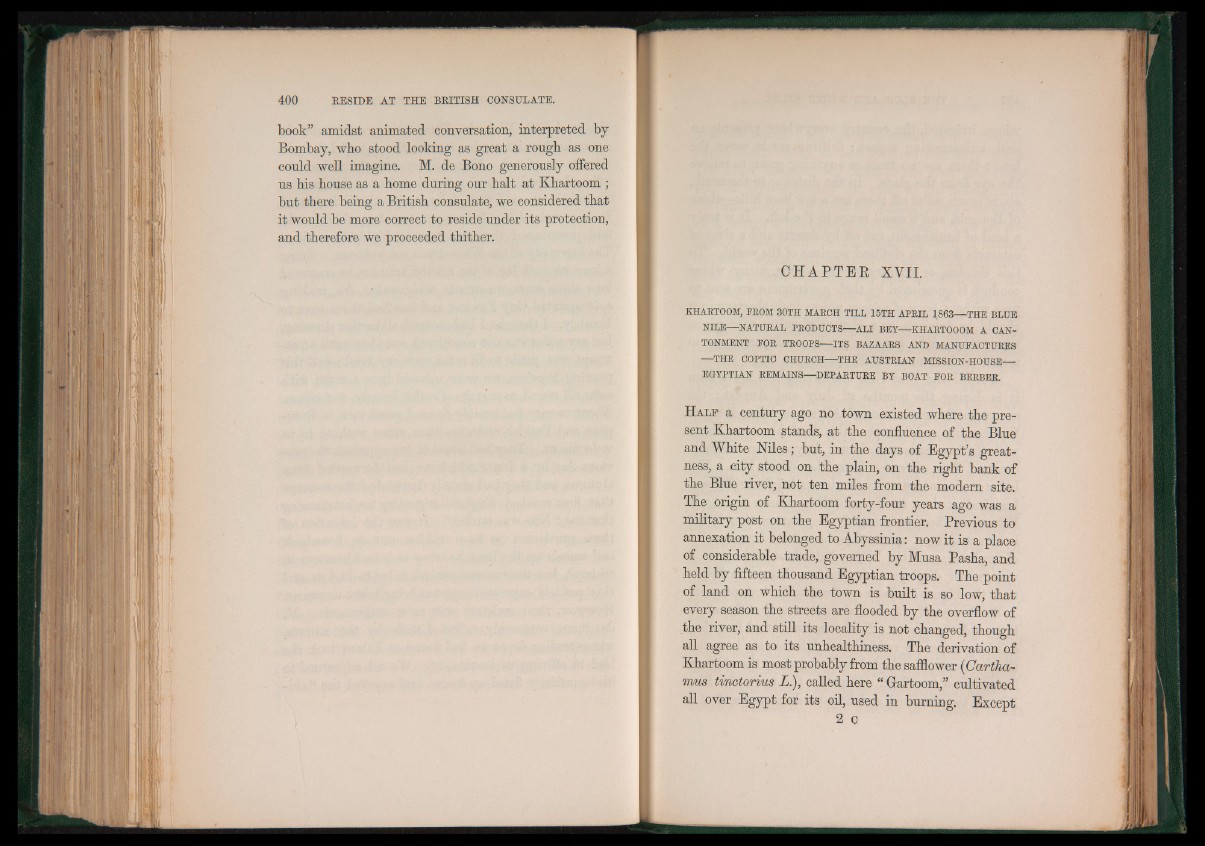
book” amidst animated conversation, interpreted by
Bombay, who stood looking as great a rough as one
could well imagine. M. de Bono generously offered
us his house as a home during our halt at Khartoom ;
but there being a British consulate, we considered that
it would be more correct to reside under its protection,
and therefore we proceeded thither.
CHAPTEK XVII.
KHARTOOM, FROM 30TH MARCH TILL 15TH APRIL 1863— THE BLUE
NILE— NATURAL PRODUCTS— ALI BEY— KHARTOOOM A CANTONMENT
FOR TROOPS— ITS BAZAARS AND MANUFACTURES
— THE COPTIC CHURCH— THE AUSTRIAN MISSION-HOUSE—
EGYPTIAN REMAINS— DEPARTURE BY BOAT FOR RF.VTratt
H a l f a century ago no town existed where the present
Khartoom stands, at the confluence of the Blue
and White Niles; but, in the days of Egypt’s greatness,
a city stood on the plain, on the right bank of
the Blue river, not ten miles from the modem site.
The origin of Khartoom forty-four years ago was a
military post on the Egyptian frontier. Previous to
annexation it belonged to Abyssinia: now it is a place
of considerable trade, governed by Musa Pasha, and
held by fifteen thousand Egyptian troops. The point
of land on which the town is built is so low, that
every season the streets are flooded by the overflow of
the river, and still its locality is not changed, though
all agree as to its unhealthiness. The derivation of
Khartoom is most probably from the safflower (Cartha-
mus tinctorius L.), called here “ Gartoom,” cultivated
all over Egypt for its oil, used in burning. Except
2 o